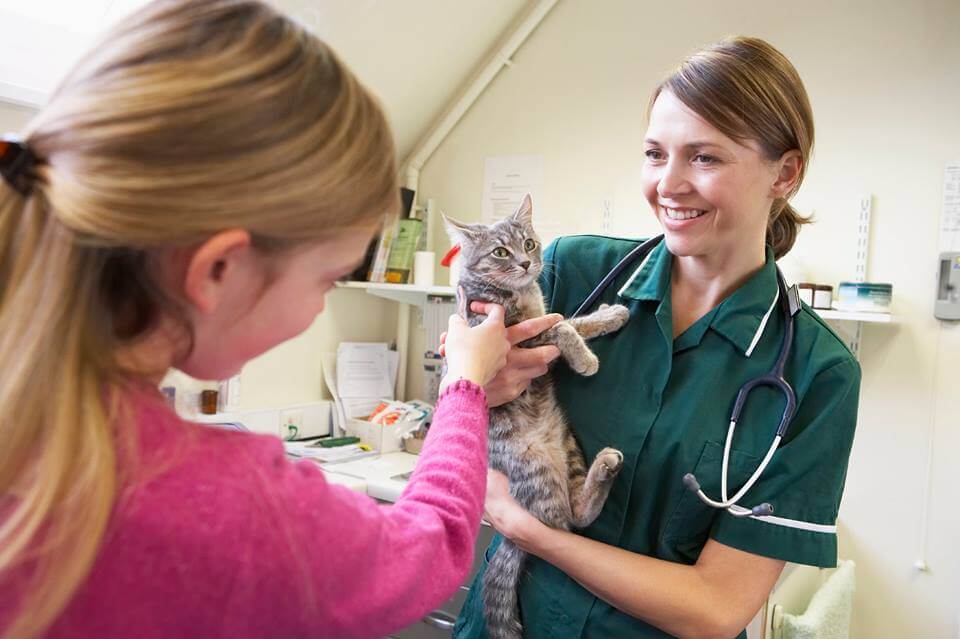Check out the Michigan Humane Society blog on Mondays to see common veterinary questions answered. If you have an immediate medical concern with your pet, please call your veterinarian! If you have a non-urgent question you would like answered on the blog, you can comment here or email us at mail(at)michiganhumane.org.
“How do I protect my pet from the cold weather?”
Keep pets indoors during cold weather. Small breed dogs and dogs with short hair should only go outdoors for short times when necessary. A sweater or coat may be needed to protect them from the cold, but remember ear tips, tails and feet are all prone to frostbite. After going outdoors, wash and dry your pet’s feet to remove any salt, ice or other irritating substances.
If pets are kept outdoors, they must be provided with appropriate shelter such as a heated garage or insulated house. The house should have a slanted roof, a floor that is raised up off the ground, and the opening should be covered with a flap to prevent drafts. Clean, dry straw should be provided as bedding. A water source that does not freeze is necessary, along with plenty of high quality food since outdoor animals burn more calories in the cold weather from trying to keep warm.
Outdoor cats will often seek shelter under the hoods of warm cars. Watch for paw prints in the snow around your car. Knock on the hood before starting your car to warn a cat that might be hiding inside. Keep cats indoors.
Do not allow your pet to walk on frozen lakes or ponds. The ice may be thin and your pet could fall into the water.
Antifreeze is deadly to animals. Just small amounts will lead to kidney failure and death. Keep antifreeze out of reach of animals and clean up any spills promptly and thoroughly.
Pets may be prone to dry skin during the winter months. A humidifier may help prevent this. Consult your veterinarian if your pet is scratching excessively or has red, irritated skin.


Reblogged this on Play in Oakland County and commented:
As winter weather approaches, here are some great tips from the Michigan Humane Society on how to protect your pets during cold weather.
Here are some of our own tips too:
1. Dry your pets off when they come in wet from rain or snow.
2. Keep pets hydrated
3. Feed your pets (pets who have been outdoors may require more food to stay nourished)
4. Check paws for cracked skin and ice build up
5. Have a blizzard storm plan that includes your pets in place
6. Locate a pet-friendly hotel in case you need to leave your home in an emergency
Remember, if it’s too cold for you outside, it’s too cold for your pet!
I couldn’t agree more that if it’s too cold for you, then it is too cold for your pet. So many people say that animals will be completely fine because they have a fur coat. The fur coat isn’t any thicker than a light sweater. I wish that there was a way to teach more people about this.
I personally don’t have any pets, but right now during the winter season, it’s really cold outside. It seems that that last tip about having a predetermined pet friendly hotel could be quite useful if you need to leave your house suddenly with all of the snow storms that have happened. It seems it would be terrible to leave your pet behind to potentially suffer if you are leaving.